The views expressed in our content reflect individual perspectives and do not represent the authoritative views of the Baha'i Faith.
They must put away the weapons of war, and turn to the instruments of universal reconstruction. – Baha’u’llah, Epistle to the Son of the Wolf, p. 30.
Thank God thou didst become a soldier of life; subdued the domain of hearts with the arms of the love of God and the sword of concord and peace… – Abdu’l-Baha, Tablets of Abdu’l-Baha v1, p. 148.
Of all the good reasons not to kill anyone, let’s not forget that we all reap what we sow:
War and rapine with their attendant cruelties are an abomination to God, and bring their own punishment, for the God of love is also a God of justice and each man must inevitably reap what he sows. Let us try to understand the commands of the Most High and to order our lives as He directs. True happiness depends on spiritual good and having the heart ever open to receive the Divine Bounty. – Abdu’l-Baha, Paris Talks, p. 106.
We’ve all heard that “each man must inevitably reap what he sows.” The Bible says the same thing in Galatians 6:7: “For whatever a man is sowing, this he will also reap.” Karma, the central Buddhist teaching, tells us that each act we do, kind or unkind, eventually comes back to us.
This concept, which some philosophers call the “just-world hypothesis,” refers to the idea that we all face justice for our actions sooner or later. Our deeds, every great Faith tells us, will ultimately be rewarded or punished, in this world or the next.
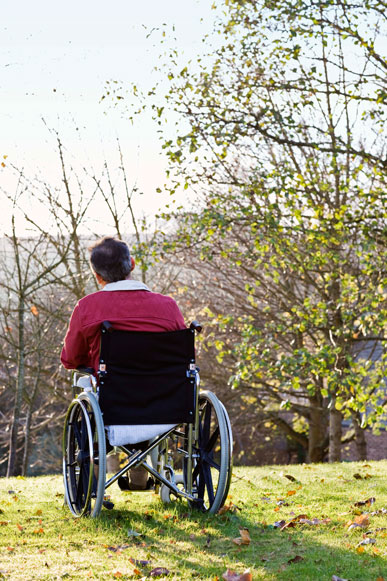 I know very little about what happens in the next world, but I do know that people who kill in war will suffer here in this world as a result.
I know very little about what happens in the next world, but I do know that people who kill in war will suffer here in this world as a result.
Many if not most cases of post-traumatic stress disorder (PTSD) come, I’m absolutely convinced, from killing. Here’s the way I’ve seen it work in combat hundreds of times: a soldier kills the enemy. Initially the soldier feels a sense of elation and achievement. He has accomplished his mission, reduced the threat of his own death and the death of his buddies, followed his orders and managed to stay alive.
But then, inevitably, if that soldier has any conscience at all, he revisits the scene of that death in his mind. Unable to forget it no matter how hard he tries, the indelible moment plays again and again across his memory. He usually knows, just as all of us know somewhere in the deepest part of our hearts and souls, that killing another human being violates one of the most basic spiritual laws. This knowledge eats away at him. He has nightmares, and they begin to torment him. Maybe he uses alcohol or drugs to stop the pain of the dreams. If he kills again, sees a friend die, is wounded, experiences more trauma, his PTSD deepens. Eventually the war ends for him. He goes home, and carries his trauma with him back into the culture.
I’ve seen soldiers crippled mentally, psychologically and spiritually for life from the trauma of killing another human being. That trauma can even turn into mental illness. Unable to function, hold jobs, build relationships or find their way back into normal society, severe PTSD sufferers can slide into homelessness, addiction, or worse. I suspect that’s why approximately a third of America’s homeless population are veterans.
So that’s another good reason not to kill anyone—because when you do, you kill a part of your own soul.
When Baha’u’llah says “Ye have been forbidden to commit murder” in his Most Holy Book, Baha’is take that command literally–and figuratively, as well. Committing murder has enormous spiritual consequences for the one who takes a life, so this law protects not just the one who might be killed, but the potential killer, too. Forbidding violence, the Baha’i teachings ask each person to exert themselves in the pursuit of peace:
God has created men to love each other; but instead, they kill each other with cruelty and bloodshed. God has created them that they may cooperate and mingle in accord; but instead, they ravage, plunder and destroy in the carnage of battle. God has created them to be the cause of mutual felicity and peace; but instead, discord, lamentation and anguish rise from the hearts of the innocent and afflicted.
As to you: Your efforts must be lofty. Exert yourselves with heart and soul so that, perchance, through your efforts the light of universal peace may shine and this darkness of estrangement and enmity may be dispelled from amongst men, that all men may become as one family and consort together in love and kindness, that the East may assist the West and the West give help to the East, for all are the inhabitants of one planet, the people of one original native land and the flocks of one Shepherd. – Abdu’l-Baha, The Promulgation of Universal Peace, p. 469.








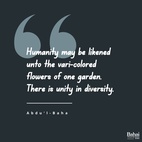
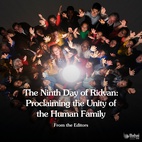
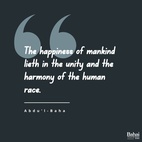
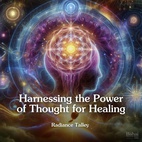
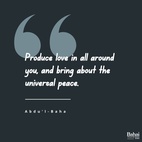
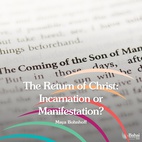
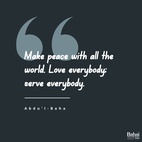


Comments
Sign in or create an account
Continue with Facebookor